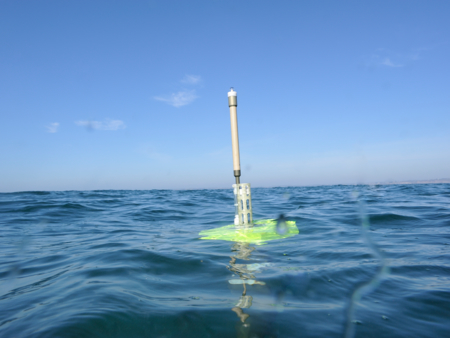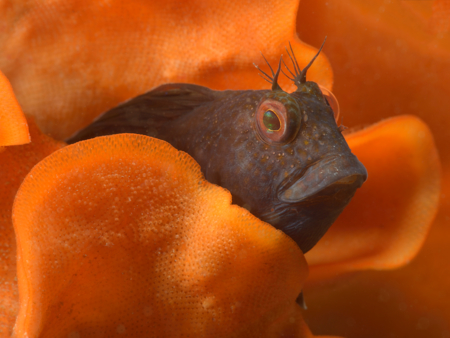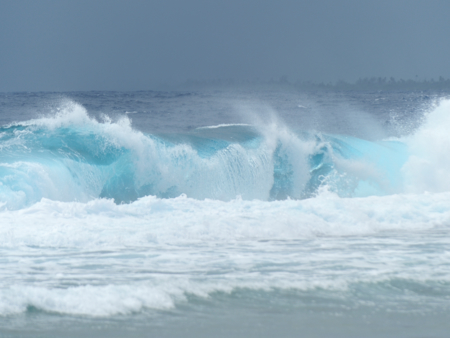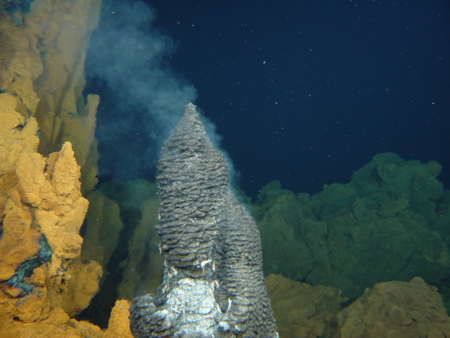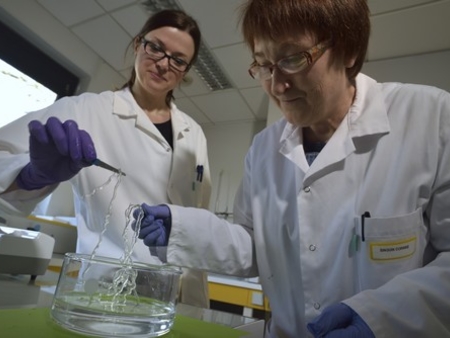
French national institute for ocean science and technology
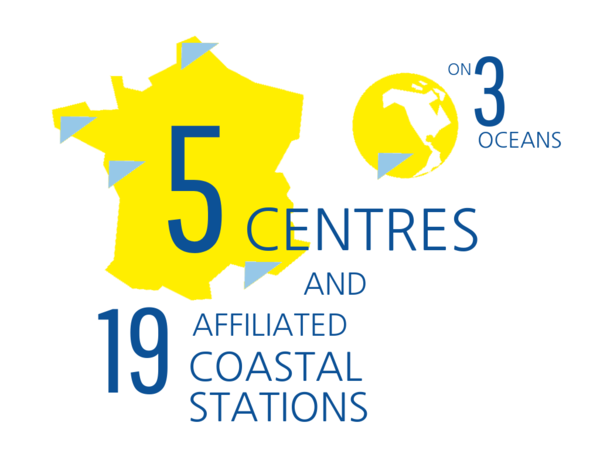
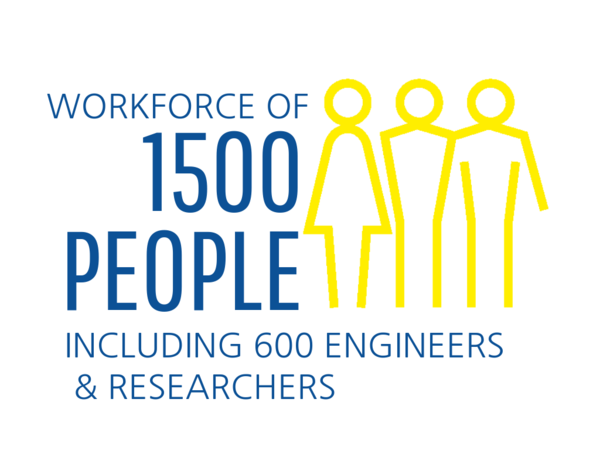
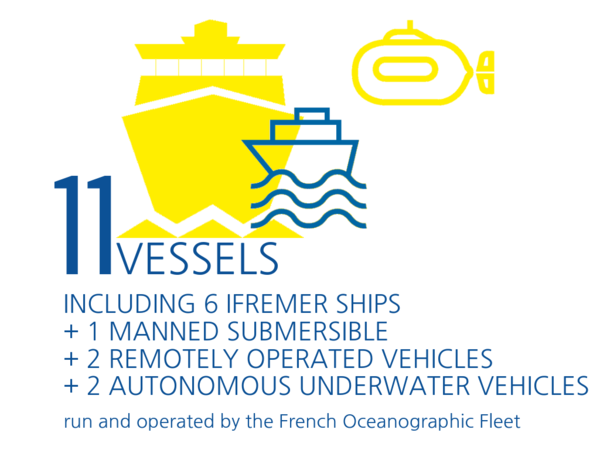
The French Oceanographic Fleet
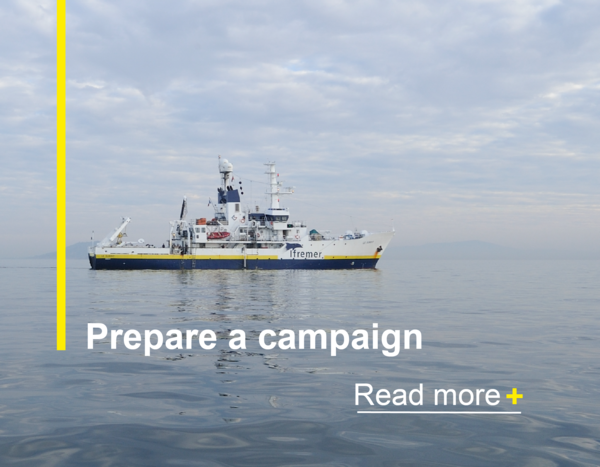
European infrastructures
Latest News

'The mysterious disease of Senegalese fishermen': the culprit is a toxic marine microalga
In 2020 and 2021, a mysterious skin disease affected more than a thousand Senegalese fishermen, raising concern and international attention. A study conducted by an international scientific consortium and published on February 13 in the journal EMBO Molecular Medicine reveals the origin of this disease: a toxin produced by the marine microalga Vulcanodinium rugosum triggers a severe inflammation of the skin cells. This study highlights the increased risks associated with environmental toxins, exacerbated by global change. It opens up prospects for better monitoring and prevention of the impact of these toxins on human health, while offering new therapeutic opportunities.
All pollution generated by human activities eventually reaches the ocean, with coastal ecosystems in the front line. In 2023, Ifremer has embarked on a vast European survey, taking 124 sediment cores from 15 coastal sites in 9 countries. The aim: to find out if and how major historical events of the Anthropocene, such as the Second World War, Chernobyl or the rise of certain practices ranging from pesticide use to port construction, have upset the fragile health of ecosystems.

When the Earth is breathing : How terrestrial tides awaken submarine faults?
A recent study by IFREMER reveals that terrestrial tides, caused by the gravitational pull of the Moon and the Sun, can reactivate submarine faults. This reactivation could trigger significant methane emissions — a potent greenhouse gas — into the ocean and subsequently the atmosphere. It could also influence the seismic activity of faults, potentially transforming our understanding of the origins of certain earthquakes.
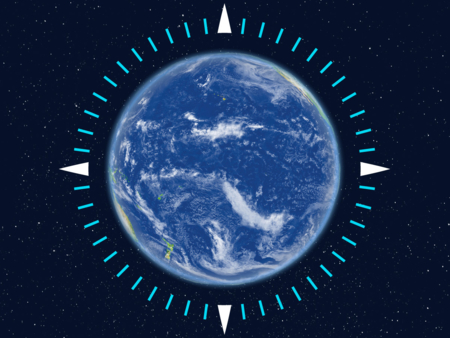
Happy New Year 2025!

On the trail of fauna associated with polymetallic nodules in the abyssal plains of Clarion-Clipperton
At a time when industrial companies are interested in the metals and rare earths found in the deep sea, Ifremer scientists are heading for the Clarion-Clipperton zone to discover the biodiversity that lives on and around polymetallic nodules. Aboard L'Atalante, a vessel of the French Oceanographic Fleet operated by Ifremer and its armament subsidiary Genavir, the scientists of the EDEN campaign are studying the abyssal plains of this Pacific region from November 2024 to January 2025 to gain a better understanding of the biodiversity associated with polymetallic nodules and how these ecosystems function.

Six new seamounts discovered in the Pacific
Scientists on board the Pourquoi pas?, flagship of the French Oceanographic Fleet, operated by Ifremer and its shipping subsidiary Genavir, have recently mapped 16 seamounts in the North Pacific off Mexico. Ten were previously identified by satellite imagery but the other six had never been recorded.

Shellfishes emit CO2, what solutions exist?
In an article published in Reviews in Aquaculture, scientists reveal the idea that shellfish farms capture atmospheric carbon dioxide (CO2), is incorrect. In fact, shellfish emit CO2 as they build their shells. Returning shells to the water after the meat has been consumed, or cultivating algae with the shellfish, are promising ways of reducing CO2 emissions from shellfish farming.

One Ocean Science Congress: scientific foundation for the 3rd United Nations Ocean Conference
The ocean urgently needs decisive, swift, and unified efforts to address its critical condition. This is the challenge facing the global community at the third United Nations Ocean Conference (UNOC3), to be held in Nice from 9 to 13 June 2025. To ensure that the political decisions to be taken are rooted in science, IFREMER and CNRS organize the international scientific congress One Ocean Science bringing together 2,000 experts from all over the world.

From herpesvirus in oysters to cancer in humans: the discovery of shared mechanisms opens up new avenues of research
Scientists from the Ifremer reveal in the journal Science Advances that, as with most species, the age of oysters influences the survival of their offspring: the older the oysters, the higher the mortality of their larvae.
